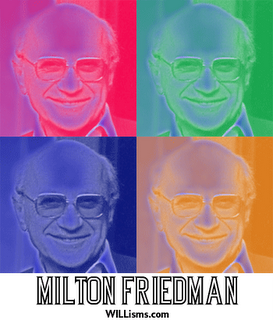This article appeared on today's<20th November> New Age as an Op-Ed piece under the title of "Is Advertising a Crime" BdNews24 reported recently:
“GrameenPhone, Aktel sued
Mobile giant GrameenPhone and its rival Aktel were sued Wednesday on charges of deceiving subscribers with advertisements.
Advocate Rafiqul Islam charged GrameenPhone Managing Director Eric Aas and Marketing Director Rubaba Doula Matin with 'deceiving the subscribers by alluring advertisements.'
The lawyers alleged mobile operators run 'alluring advertisements' on newspapers and televisions and 'deceive' the general people to make windfall profits.
They also alleged that the operators in an advertisement printed and aired on November 7 offered special prizes for subscribers.
Subscribers spending between Tk 300 and Tk 500 will be in with a change [sic] to win a camera phone through lottery, Plasma TV if they spend Tk 501 to Tk 1000, Japanese car for Tk 1001 to Tk 3000 and an apartment for Tk 3000 and beyond.
The lawyers said such advertisements are illegal as they violate the Section 295 (b) of the Code of Criminal Procedure.” CondensedIsn't that the point of advertising, to allure consumers to buy products or services on offer?
As most who read this blog know, I work in advertising. So I guess I am a guilty party as well. And this is my defence.
I know it is fancy to blame advertising for the evils of consumerism. I was shocked to learn that my young nephew at a junior class in a fancy Australian school in Dhaka was taught that advertising was evil and all of it is a lie. And often in polite company I am asked, "but do you actually believe what an ad says?" Isn’t it easy to make advertising the scapegoat for all the flaws of our desire? After all if you did not see the ad for the shimmering new mobile phone you might not ever want one.
But let us examine some of the finer points of this notion. We advertising professionals believe that we promote competition and hence benefit consumers in the end. Without the ad fuelled marketing blitz would call rates have dropped in the manner it has recently? And it is not only limited to consumer advertising. Bangladesh's success story in population control is in a large part attributable to the superb work done by SMC [Social Marketing Company - the owners of Raja, Maya, Hero, Nordette, Minicon, Sensation and Panther] and their advertising agencies (yes, we are one of them).
Advertising we believe gives a consumer choice. I could feel thirsty and want to drink Coke. Or Pepsi. Or RC Cola. Or Uro Cola. Or Pran Cola. Or Suncrest. Or Mecca Cola. Or Mojo (our client). If there were no advertising, then how would the consumers know the bevy of alternatives available?
Advertising encourages better products. I still remember when Mr. Mustafa of Kollol Industries came to us first with the idea of facial tissues in the early 90s, we secretly wondered, "who in Bangladesh would pay money and use this product?" Good sense prevailed and the brand Fay was born. After years of successful advertising, today it is the market leader in a vibrant product category with many brands. The quality of the product too has not stayed static. Faced with competition, clients diligently invest in R&D of products, and to use an advertising parlance "new, improved" versions come to market in a regular stream. Let me remind you of the boom in advertising that started in mid to late 90s. Out of nowhere came this "halal shaban" [religiously pure soap] and obliterated the market leader till that point of time. Consumer research showed that while the "halal" was a hook for people to try the product for the first time, they stuck on because consumer's felt that it was a far superior product than the market leader Lux soap. Then started the real fight. Brand managers at Lux began rebuilding the brand and more importantly the product. Since then the soap market has been highly competitive. It is true both on advertising and product quality side. It can be argued that for its retail price, soaps available in Bangladesh today are probably the best value in the world.
Abraham Lincoln had famously said "you may fool all of the people some of the time; you can even fool some of the people all of the time; but you can’t fool all of the people all of the time". I think at heart honest Abe was an advertising man (politicians being practitioners of the same profession!). What he said is a maxim of advertising today. A consumer will believe you only once when you give an attribute to a product that it does not deliver. I might “allure” you with the promise of long shiny hair or to make you attractive to the opposite sex but if it does not deliver on those promises will you ever buy the product again? As a proof I give you all the miracle diet pills in my medicine cabinet.
Now of course there might be dishonest vendors out there who will abuse the trust a consumer puts in them. But let me promise you this. On the long run their product is not here to stay and they are nothing but con artists. Every industry has these charlatans. But just because a quack prescribes you lizard tail wonder drug does not mean that the whole medical profession is a sham.
So to come back to the central premise of the lawsuit against Grameen Phone, did they say anything that is not true? Well actually no. If you see the ad they are basically saying that to celebrate their 10 years of service they will give away some gifts to users of their product. Now will they do it? Of course! Grameen Phone is no fly by night operator. They are amongst Bangladesh’s most respectable and professional companies. (Confession time: they too are clients though not for this particular campaign). The problem it seems that they have violated Section 295 (b) of the Code of Criminal Procedure. Okay let me spare you the task of calling up your lawyer friends. This section, please bear with me, states: “Offering of prize in connection with trade, etc – Whoever offers, or undertakes to offer, in connection with any trade or business or sale of any commodity, any prize, reward or other similar consideration, by whatever name called, whether in money or kind, against any coupon, ticket, number or figure, or by any other device, as an inducement or encouragement to trade or business or to the buying of any commodity, or for the purpose of advertisement or popularising any commodity, and whoever publishes any such offer, shall be punishable with imprisonment of either description for a term which may extend to six month, or with fine, or with both.”
Well I am not a lawyer (and needed to read the above more times than I care to confess) but the gist of it is quite simple. One cannot offer any gifts that will entice you to purchase a product. Yes, ladies and gentlemen, strictly speaking advertising is illegal. Or atleast giving something for something (e.g. buy a powder and get a soap free); or more of something (20% more shoe polish in each bottle); or even a price discount (Tk 2 off the next purchase of x washing powder) is a strict no-no. Does that make sense? Does the consumer, for who this law was enacted in 1965, benefit?
“The times they are a-changin,” sang iPod’s latest brand ambassador Bob Dylan. Forty years on, this law should no longer remain in the Penal Code. Matter of fact most of us criminal advertisers have devised loopholes to get around this speed breaker. Unfortunately the only ones being disadvantaged are the consumers, as it ultimately limits the benefits that they would get. I mean if Grameen Phone wants to give away an apartment or two, who’s to complain? Well hopefully, the subscribers of the other telcos. And if that means they too give away apartments in Dhaka then at least a handful of subscribes benefit. The marketing companies are not holding a gun to our heads and telling us to buy their product (or in this case talk longer). We are doing it on our own free will. Advertising encourages us to purchase the product from where we will benefit the most. We are basically making a choice with our wallets. I might decide that to use Grameen Phone or I may decide not to. And if I do decide to avail of their services and in the process win myself an apartment I am not complaining. Would you?
In today’s ever-changing fast paced globally synergized advertising campaign world a product cannot afford to stay chained to obsolete and arcane laws. We need to give our marketers the freedom to develop and execute effective consumer promotions. And our consumers the freedom to benefit from these offers. Time has come for the Penal Code to go through a relaunch and drop article 295[b]. As the famous ad commanded, “Just do it!”



